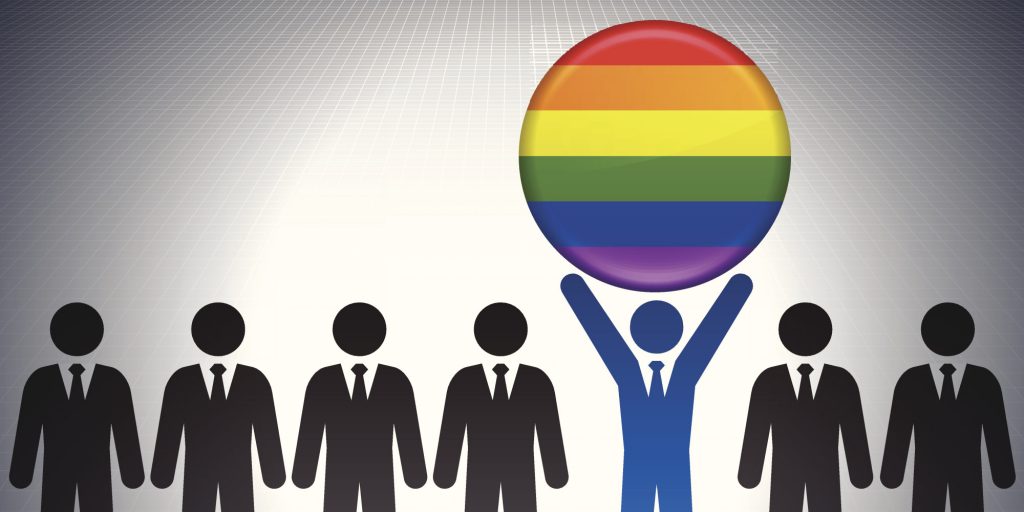
There are several monumental benefits to LGBTQ+ inclusion within multinational corporations. While it not only helps create equality for LGBTQ+ communities globally, it also positively affects business results. According to an article published by the World Economic Forum, “there are three main pillars capturing this opportunity: business, talent and equality” (Sears, 2016).
In terms of business, in 2016, the global LGBTQ+ market was estimated to be worth more than $3-trillion, and as a result, organizations globally recognized that LGBTQ+ consumers are a powerful marketforce. According to research, 71% of LGBTQ+ adults will remain loyal to a brand that is higher in cost, if that brand is supportive of the LGBTQ+ community. Additionally, as the LGBTQ+ community grows in terms of size and influence, the size of the market consisting of their allies does as well. Notably, when Chick-Fil-A’s CEO Dan Cathy spoke out against the LGBTQ+ community the “company’s brand favorability index fell from 76 to 35” (Sears, 2016).
When looking into talent, the LGBTQ+ population accounts for 5-10% of the global talent pool, therefore companies looking to stay competitive must promote and embrace inclusive policies in order to attract and retain this talent. In companies that do not promote LGBTQ+ inclusive policies, up to 10% of productivity can be negatively impacted by employees who feel they must hide their identities and/or are experiencing bullying (Sears, 2016).
Finally, companies who promote equality and have LGBTQ+ inclusive policies generally outperform the market. Denver Investments determined that companies who adopt LGBTQ+ inclusive policies outperform their competitors both 5 and 10 years later. According to a study conducted by McKinsey & Co, it was determined that “companies in the top quartile for gender diversity are 15% more likely to have returns above the industry median” (Sears, 2016).
Globally, there are several multinational companies who have strong LGBTQ+ inclusive policies. For example, for the past five years, Visa has received a rating of 100% on the Human Rights Campaign Corporate Equality Index and has earned recognition from the Human Rights Campaign Foundation as one of the top places to work for LGBTQ+ equality (Jackson, 2019). Another example is Coca-Cola, who partners with the Human Rights Campaign and also has a perfect score on the Corporate Equality Index. In 2011, Coca-Cola began offering transgender-inclusive health insurance benefits to its employees (Jackson, 2019).
Although multinational companies can have a positive influence on LGBTQ+ inclusivity globally, the motivations behind their actions can also be questioned and criticized. Inclusion is often seen as something that companies leverage rather than recognizing as a mere human right. Individuals in many companies abide by policies because they are told it is the “right” thing to do and take it from the approach that it will benefit them and not for the employees themselves. Many companies do it because it looks “good” on their webpage and attracts many qualified candidates they might be missing out on, so it can be perceived as a strategy to stay competitive rather than an acknowledgement of their human rights. Additionally, many LGBTQ+ inclusivity campaigns are often used as a marketing tactic for generating good PR for the company. While some multinational companies are committed to making positive impacts and driving equality globally, there are many who do it to improve their brand image and stay competitive within a more progressive market.
References
Jackson, A. E. (2019, June 19). Amazing Companies That Champion LGBTQ Equality Hiring Now: Glassdoor. Retrieved from https://www.glassdoor.com/blog/companies-lgbtq-equality/
Sears, T. (2016, March 4). Equality Builds Business: Why Multinational Companies Should Invest in Out Leaders. Retrieved from https://www.weforum.org/agenda/2016/03/why-multinationals-should-invest-in-LGBT-leaders/
Leave a Reply